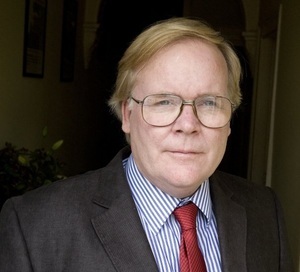Michael Taft
Today, just seven working days into the New Year, the average remuneration for CEO’s in the top 21 Irish companies (which represent 95 percent of the market value of the Irish Stock Exchange), has already exceeded the average yearly pay for a full-time employee. The rest of the year is cream.
There have been numerous studies of CEO pay in the US and the UK (the British trade union movement has been using the fat cat day concept, most recently just last week). But the literature in Ireland has been thin. That is, until ICTU’s ground-breaking study into Irish CEO pay: ‘Because We’re Worth It’. Published last year, it is based on 2015 accounts. ICTU will be publishing updated and expanded data on January 19.
And what they found is that CEO remuneration – basic pay, bonuses, long-term investment plans, benefits-in-kind and pensions – is high and growing exponentially.
Starting at the top we find the CEOs in CRH, Kerry Group, DCC, Paddy Power, Smurfit Kappa and Grafton all receiving remuneration in excess of €3 million. 13 of the top 21 companies surveyed remunerate their CEOs in excess of €1 million.
Not only is the level of CEO remuneration high, the rate of growth has also been high. Between 2009 and 2015 – the years when we were all supposed to be tightening our belts – the average increase in CEO remuneration was 75 percent, or €890,000. Average employee compensation for full-time employees increased by 1.6 percent, or approximately €850.
We shouldn’t make the mistake of assuming that high CEO pay is a proxy for income inequality. After all, we’re only talking about 21 executives in ICTU’s sample. However, it is part of a larger, troubling picture. For instance, Ireland is at the bottom of our EU-peer group table when comparing labour share of national income.
Employee compensation in the business economy (essentially, the private sector) is, likewise, near the bottom of the same peer-group table – especially in the large domestic sectors, distribution and hospitality. The Irish economy generates the most unequal incomes in the entire EU; that is, before social transfers. Irish capitalism practices trickle-up economics.
Some may argue that these individuals, the CEOs, earn their level of remuneration because – as the title of ICTU’s study mischievously puts it – they’re worth it. However, there is no consensus among scholars regarding a link between CEO pay and firm performance. Indeed, there are links between high pay and negative economic and enterprise impacts.
Chris Dillow’s post here refers to a number of studies that show high pay can lead to lower productivity, perverse incentives, and a disproportionate focus on short-term indicators at the expense of long-term outcomes such as investment.
Further, we should remember that CEO pay is not set by the ‘market’ but rather by remuneration committees; in other words, the CEO’s peer group. The purpose of these committees is to provide a robust criteria and company comparisons in order to set CEO pay.
But as TASC’s report, Mapping the Golden Circle, points out, there can be an incestuous relationship between, CEOs, Board Directors and members of remuneration committees. The latter sit on the boards of companies and board directors can be CEOs or senior executives of other companies:
‘ . . . executive compensation in large publicly traded firms often is excessive because of the feeble incentives of boards of directors to police compensation … Directors are often CEOs of other companies and naturally think that CEOs should be well paid. And often they are picked by the CEO.’
To put it another way, what would be the reaction if we proposed that workers set the wage of other workers in comparable firms by committee?
If high CEO pay has negative economic and firm consequences, along with offending our more egalitarian instincts, what can be done? ICTU has a number of suggestions:
Require companies to set objective criteria for CEO pay including factors such as employee welfare and environmental protection as well as financial performance
Expand the remit of the Low Pay Commission to monitor the relationship between highest and lowest pay
Report on the use of temporary agency workers and sole traders (which in many cases are used to drive down payroll expenses)
Make shareholders’ on executive pay binding rather than advisory (yes, the ‘owners’ of the company do not have an automatic right to collectively set pay – so much for ‘ownership’)
A higher tax on very high incomes (e.g. in excess of €1 million)
However, if high executive pay is part of a larger picture, we need broader economic and social strategies to address the problem of the widening gap. There isn’ the space to go into that here but as a start I would propose the extension and deepening of collective bargaining.
As the OECD pointed out – and discussed here – the top 1 percent have a lower share of income in economies where more workers are covered by collective bargaining. This makes sense: collective bargaining puts upward pressure on low and average incomes and, so, puts downward pressure on higher incomes – whether in the firm or the economy.
There is no magic bullet in all this. ICTU has done the debate a service in providing this information on CEO pay. Hopefully, this will provoke greater public, political and academic interest in the subject. Excessive gaps in income, high levels of inequality are socially corrosive and economically inefficient.
If we’re not careful, every day in the future will be a day for fat cats.
NOTE: ICTU will be holding a briefing on their updated data on CEO pay on Friday, January 19 at 10:30 am in their offices at 31-32 Parnell Square, Dublin 1. If you wish to attend please confirm your attendance to: eileen.sweeney@ictu.ie
Michael Taft is economic analyst and author of the political economy blog, Notes on the Front.








Whatever about the others on the list but if ever there was a reason to learn gambling is a mug’s game, PaddyPower’s CEO’s salary demonstrates that.
Take out the banks
and every other crowd there are Industry
what those businesses do with their payroll is up to them
and let them run the gauntlet with their shareholders
like, its pretty shocking but still
And theres a quare few State, Semi State, Union, NGO CHY heads well into the 6 figures;
btw, would any of those companies charted out above there hire John Delaney as CEO?
indeed, taking a look at the package of the CRH CEO for example, about 2/3rd of it is linked to share price performance and stock compensation so if he doesn’t deliver for shareholders (many of which are also employees) he doesn’t get paid alot of it
i’m not sure what the right figure is for CEO compensation but these are huge private businesses, 86k employees, multi billion balance sheet and performing well. A compensation package in the millions may look bad, but for the most talented CEOs it’s really not a lot in the grand scheme of things, despite how it makes people feel
the debate is different for state and semi state enterprises, but you’ll always have those who think its easy to get to the top of and run a huge business
And there’s you thinking there’s no beginning to his talents.
https://www.broadsheet.ie/2014/09/05/john-delaney-could-run-anything/
Everything that is wrong with our country is there.
you should get out more
+Dancing with the stars
I’m surprised €52k is the average wage!
Bern
That €52,000 figure is for full-time employees. Also, it includes, on average, other benefits – pension, social insurance, bonuses, over-time, benefit-in-kind, etc. It tries to compare like with like. That actual average earnings is €36,000 – but this includes part-time workers and doesn’t include benefits.
Ah, thanks!
Paltry in comparison with the average small family home in Dublin. Would love to see how this ratio has evolved over the years.
Thanks from me too.
Great piece, and great links!
I think some of the Broadsheet commentariat will have a fit of the vapours upon learning this.
Michael, an interesting article. What do you think the ratio of pay should be for the CEO of a highly successful airline such as Ryanair (responsible for the safe running of an organization that moves over 120 million passengers on about 400 aircraft annually) compared to say the head of cabin crew on one of those aircraft (probably close to the average industrial wage)? And how should that ratio be calculated?
Jake38 – I wouldn’t be inclined towards legal ratios (though in the US companies will have to publish that data – CEO pay and the median wage in the firm – that would be helpful). Ratios are blunt instruments abd easy to avoid (when Switzerland voted on such a pay ratio, it was pointed out that companies would outsource their lower paid jobs to maintain a high payroll average).
There are two concrete steps: first, give shareholders a legal say over executive pay. Currently, they only have an advisory role. In other words, let the owners of the company have authority in this area.
Second – and to me, the most important – is to radically extend and deepen collective bargaining. Below is a link to a post I did last week on the subject and in it I link to an OECD paper which discusses the impact of collective bargaining coverage on the share of the top 1 percent. Collective bargaining puts upward pressure under low and average incomes and downward pressure on top incomes – in both the economy and the enterprise.
http://notesonthefront.typepad.com/politicaleconomy/2018/01/you-will-not-ignore-us.html
I think shareholders becoming much more active in opposing renumeration reports is happening and that’s good. There’s a good article here about it and there is already binding votes on future pay policies.
https://www.ft.com/content/5c031f44-13a5-11e7-80f4-13e067d5072c
As an aside, it’s great to see a contributor properly engage with commentators on here.
ahem
Michael, many thanks.
(Though you have not answered my question)
Jake38 – to be honest, I thought I did. I’m not in favour of ratios and instead look at structural responses (e.g. collective bargaining). In that respect, given Ryanair’s new IR policy, it should be interesting to see the trajectory of executive and employee pay over the next few years.
Unionization is the way to go for private PAYEs, there is no advocates for us. But it would have to be brand new unions. There is too much baggage with the existing ones.
“Require companies to set objective criteria for CEO pay including factors such as employee welfare and environmental protection as well as financial performance.”
While I think that we can all agree that companies have a CSR remit, I think it would be difficult to set an objective criteria to measure something as subjective as employee welfare and well being. How much would it cost management of smaller organisations to carry out this quantitative analysis? How could we legislate to audit this process? What penalties would there be for companies who fall below this employee welfare threshold?
Sounds a bit nebulous.
*qualitative analyis
“Require companies to set objective criteria for CEO pay including factors such as employee welfare and environmental protection as well as financial performance”
would the Unions support similar objective criteria for setting the pay of their members?
sum’ting else
although it may not be of any interest to most of ye or even Prof Taft there
I’d love to know what the Big 4 Partnership divies in Ireland were
PWC
EY
Deloittes
KPMG
maybe Wm Frys & Arthur Cox too
is it just me?
Fupploads. Certainly in Arthur Cox. And Matheson.
Greed
Wow so deep man.
are you high? :-)
Manifold’s package was €10mm in 2016 :)
Not bad – share price increased 21% in 2016.